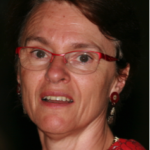Lien vers Pubmed [PMID] – 12169591
J. Bacteriol. 2002 Sep;184(17):4681-9
The way in which the genes involved in cysteine biosynthesis are regulated is poorly characterized in Bacillus subtilis. We showed that CysL (formerly YwfK), a LysR-type transcriptional regulator, activates the transcription of the cysJI operon, which encodes sulfite reductase. We demonstrated that a cysL mutant and a cysJI mutant have similar phenotypes. Both are unable to grow using sulfate or sulfite as the sulfur source. The level of expression of the cysJI operon is higher in the presence of sulfate, sulfite, or thiosulfate than in the presence of cysteine. Conversely, the transcription of the cysH and cysK genes is not regulated by these sulfur sources. In the presence of thiosulfate, the expression of the cysJI operon was reduced 11-fold, whereas the expression of the cysH and cysK genes was increased, in a cysL mutant. A cis-acting DNA sequence located upstream of the transcriptional start site of the cysJI operon (positions -76 to -70) was shown to be necessary for sulfur source- and CysL-dependent regulation. CysL also negatively regulates its own transcription, a common characteristic of the LysR-type regulators. Gel mobility shift assays and DNase I footprint experiments showed that the CysL protein specifically binds to cysJ and cysL promoter regions. This is the first report of a regulator of some of the genes involved in cysteine biosynthesis in B. subtilis.


